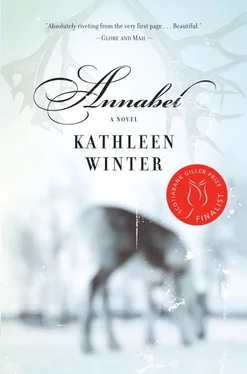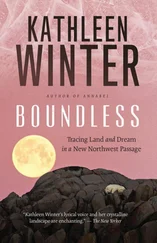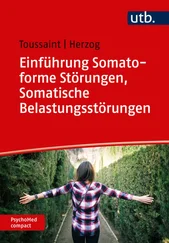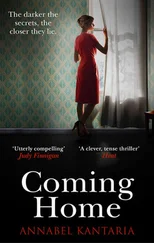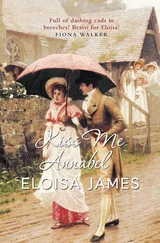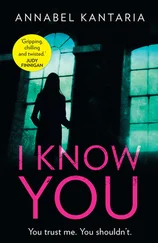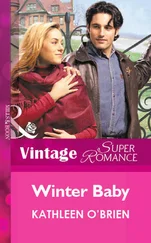Wayne could not bear to think of his father lost in a telephone booth at the King’s Bridge Road traffic circle. He put the phone down and ran down Forest Road and King’s Bridge Road, and when he saw the telephone booth in the distance with cars and trucks and traffic lights and the hotel all buzzing around his father, who stood in front of the phone booth carrying a rolled-up sleeping bag, he thought how lost his father looked, how small and round and like a wild owl or a shore duck that had been blown a thousand miles off course, far from its own habitat.
When Treadway saw Wayne’s apartment, how bare it was, he said, “It’s a good thing I brought my sleeping bag.” But he did not dwell on this or make Wayne feel as if the apartment was not good. Treadway had slept in harder conditions than this, and he made do with the floor as his son did. There was a bedroom, and Treadway rolled his jacket into a pillow and said the floor was palatial. Hearing his father say this made Wayne realize Treadway had the capacity in him to be funny, which Wayne had not known. Treadway unrolled his sleeping bag and took out of it another bag, one of the woven fertilizer bags he normally used to bring sawdust from Goudie’s sawmill to pack around his carrots in the winter shed. From that bag Treadway took a coil of snare wire and his toothbrush and three pairs of socks and three pairs of underwear, which Wayne realized was the sum of his luggage.
“Let’s go to Ches’s for fish and chips.” Treadway folded the fertilizer bag flat and tucked it into his waistband. Wayne was surprised his father knew about Ches’s.
“It’s famous,” Treadway said. “Everyone has read about Ches’s.”
In fact, Wayne told him, Leo’s was better than Ches’s. Leo’s was not as famous but they fried the fish twice and the batter puffed like a cloud, and the fish was better too. Treadway said he was starving, so they walked together back to Military Road and up to the end of Long’s Hill, where all the fish and chip shops were. As they walked, Treadway kept surprising Wayne with things he knew about the local roads and architecture and details of the city.
“They got the stones for that from Galway,” Treadway said as they passed the basilica. “The limestone anyway. The granite they brought over from Dublin.” He looked at everything and seemed interested in it. When they reached Leo’s, Treadway sat down and scuffed his feet over the floor and said, “You don’t get many terrazzo floors anymore.”
Wayne had been in Leo’s many times and had not noticed the floor. Now he looked at it.
“It’s old. Cracked,” Treadway said. “They can’t get anybody to fix it in this day and age. But beautiful.”
There were a few things Treadway wanted to do, he told Wayne, while he was in St. John’s. He was staying for three days, and he wanted to see the exhibit of Beothuk and Inuit tools and household artifacts and hunting clothes in the Newfoundland Museum on Duckworth Street. There was a carving knife he particularly wanted to see, and a child’s fur coat with part of the tail of the animal intact.
“And I’d like you to tell me,” Treadway said, “the name of the person who attacked you. And if there is a grocery store nearby, there is something I’d like to buy in it.”
It was the first mention Treadway made of why he had really come: the misery and sadness of his son. He had not said anything about Wayne’s appearance but he had taken it in, and he did not appear to be shocked or upset by it. Wayne had always appeared more graceful than other boys as far as Treadway was concerned. He had always had an air of gentleness about his face, and his shape had not been very much different from what it was now, though there had been muscle where there was now litheness. Wayne wore a plain shirt and jeans that were the kind he had always worn, and Treadway had noticed the girl’s breasts on his son before. They were not new to him, and they were small. You could miss them if you were not looking carefully. But Treadway was looking carefully.
He took his pocketknife out and used it to cut his fish, and he noticed everything around him, including the type of engine on the city bus that passed by Leo’s window, and the German make of the clock on the fire hall across Harvey Road.
“Dad, I didn’t know you knew so much about St. John’s.”
“I don’t know anything about St. John’s.”
“You do. You know what kind of stone is in the churches and where it came from, and you know about the floor here and the bus engines, and you know what exhibits are down at the museum. I didn’t even know there was a museum.”
“You would have noticed it sooner or later. And I don’t know about the stone in all the churches, just the basilica and the Anglican cathedral, and some of the churches and castles in England and Scotland, because I read about them. Anything I know about I’ve usually read, even a lot of what I know about trapping. I get a lot from books.”
Wayne realized how often he had seen his father reading. He knew there were books in his trapping hut, and there were always books beside his bed at home. He had not thought about the books as having the ability to help his father orient himself in St. John’s, or in any strange city. The thought was new to Wayne. His father might have become lost on the way to the Forest Road Apartments, but he was not lost in the world of terrazzo flooring or German clocks, or the history of his ancestors, and it was because he read.
“I’ve had a lot more time than you have had to read. And I’ve had a lot less to contend with in my life than you have had in yours. What I’d like to know now, Wayne, is the name of the person who attacked you.”
“Derek Warford. Why?”
“Because I might like to have a word with him. And I would like to see the place where it happened. This Deadman’s Pond that Thomasina told me about.”
“Dad.”
“As a matter of fact, I’d like you to show it to me now. But before we go up Signal Hill I’d like to go to a grocery store and I’d like to buy a really nice orange.”
Wayne took his father to the Parade Street Dominion and then they walked down Harvey Road and took the steps to Long’s Hill. They walked along Gower Street, and while they were walking in front of the chain-link fence outside Powers’ Salvage on the east end of Duckworth Street, Treadway handed Wayne the bank book. There was no one to witness this but the gulls that circled the city’s sewage outlet. They stood near the giant pyramid of salt that the city was storing to put on the roads next winter, and there was a smell of seaweed. The fog was coming in but had not come in yet, and the sounds were gulls and cranes and containers echoing as they landed down on the docks, with the squeaking of pulleys and now and then a man shouting. The men were tiny in the distance in their hard hats. Wayne watched them through the fence, and he did not know why his father had handed him a bank book until his father explained — it was the gold.
“The gold you always had in your closet?”
“I want you to have it. Put it in your pocket and we’ll go to the credit union tomorrow and I’m going to sign that account over to you. And you, I want you to use it to do something with yourself. I don’t care what it is but I want you to think about it. Go and visit different places if you want, places where they can teach you something you want to know how to do. It has to be something you have an interest in. And this thing here” — he gave Wayne an envelope — “is a ticket Thomasina Baikie gave me to give you.”
Wayne put the bank book in his pocket and unwrapped the ticket. It was a ticket for a performance of American folk songs by the Boston Downtown Community Choir. The ticket had cost five dollars and the date on it was August the twenty-fifth, which was in six weeks’ time.
Читать дальше
